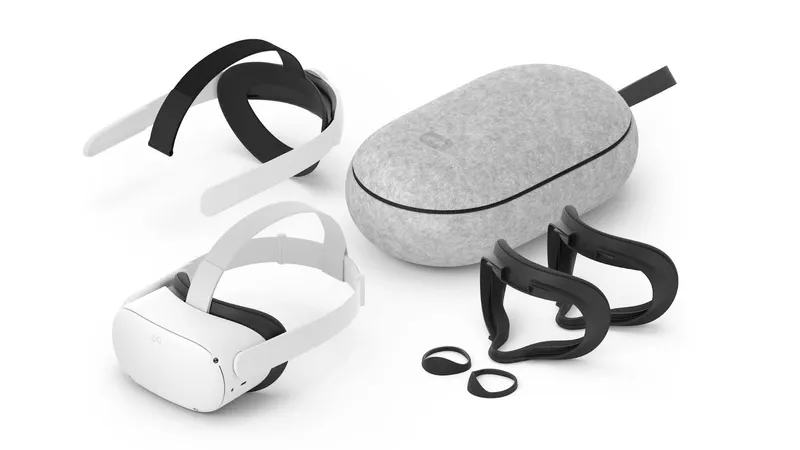Rebuff Reality launched its Kickstarter crowdfunding campaign for its PC VR, PSVR and Oculus Quest audio upgrade peripheral, VR Ears.
The VR Ears essentially take the design of the Valve Index audio solution and brings it to other headsets. It’s a pair of off-ear speakers that are meant to attach to the side of a wide range of devices, including the Oculus Quest, PSVR and Oculus Rift S and original HTC Vive. While flexible compatibility is important, the lackluster built-in audio solutions on Quest and Rift S make the product especially interesting to those users.
Complete with the option to adjust the position, a USB-C charging port and volume wheel, VR Ears hopes to accommodate anyone looking to upgrade their VR audio. That said, we’ve only had the chance to go hands-on with the kit once at CES earlier this year. While we liked what we saw (or heard) back then, we’re yet to judge what how well the system will hold up after extended use. Rebuff Reality was, however, behind the VR Power Oculus Quest battery pack, which we’re quite fond of. Notably, the VR Power accessory features two USB-C output ports — one for the Oculus Quest and the other for an additional accessory. So you should be able to charge up the VR Ears from VR Power while simultaneously charging Quest. That makes the idea of using all three products together a tempting possibility.
The VR Ears Kickstarter is seeking pledges of roughly $80 to $100 for the first units, depending on early bird specials and shipping, with the promise of initial delivery slated for November and December this year for broader shipping. Their goal is to raise $30,000 before May 21 and, as of this writing, raised well over half that amount shortly after launching the crowdfunding project. The product is also being pitched for PC gaming as well and there’s a long list of stretch goals listed on the Kickstarter page all the way through raising $1 million.
We’ll note that backing hardware-based crowdfunding projects is very risky and even experienced teams encounter unexpected delays, or failing to deliver on their promises altogether.

























